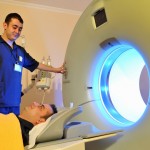
The harmful impact of depression extends far beyond the individual sufferer to caregivers, friends and family members. Children of people with depression are more likely to suffer from depression themselves. This may be due to both inherited and environmental factors. This new randomised controlled trial (RCT), published earlier this week in JAMA Psychiatry, set out [read the full story…]













